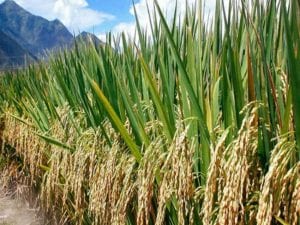
Points to consider in the parable of the wheat and the weeds:
- Traditional interpretation:
- Wheat represents the righteous, the weed represents the unrighteous.
- Harvest time represents the end of the world – the final judgment will separate the righteous from the unrighteous.
- Points to consider:
- Both good and bad exists in the world.
- Why does the landowner refuse to lose even the smallest amount of wheat in order to immediately get rid of the weeds? He didn’t want to lose even one stalk of wheat – in God’s plan, nothing good is wasted. There will be times when we won’t see the results for our good work; at those times, we will be asking ourselves the question: what is the use of my efforts, I think I should quit. But the truth is, even if we don’t see immediate results for our good work, it will eventually produce the good fruit which God has destined it for.
- We can learn much by experiencing the coexistence of both good and evil in the world. Gain wisdom from God as we observe attentively the dynamics of good and evil in the world. One of the greatest lessons we can learn is that even if evil seems to prevail, good will triumph in the end. The greatest proof we have is the Passion and Resurrection of Christ. When Jesus was arrested and His disciples abandoned Him, all seemed lost. But three days later, Jesus triumphed over sin and death in His Resurrection.
- This is very important to remember whenever we become impatient with the wrong things that are going on in our lives. Often, we give more attention to the persistence of evil rather than on the slow emergence of good. Have you not had the experience of how seemingly bad or wrong things turned out to be good for us and others? In many situations, evil happens rather quickly, and good happens painfully slow. But if we learn this fact of life, then perhaps it can give us patience, understanding and wisdom to see how good can come out of bad situations, even if it is a slow process. We must be open to God’s grace so that situations that are turning bad can be turned around and end up into something good.
- We can benefit more from persevering through bad times which makes us grow in virtue, rather than making rash judgments and actions which bring instant results at the expense of losing what may end up becoming good. Growing in virtue may be a slow and difficult process, but it is far better for us in the long run. When we are tempted to make rash judgments, open our mouths quickly or act foolishly, let us remember that we can always choose to grow in virtue by being patient and understanding.